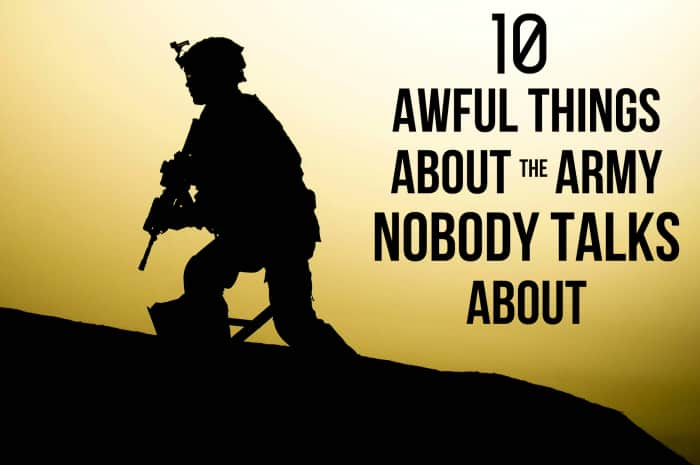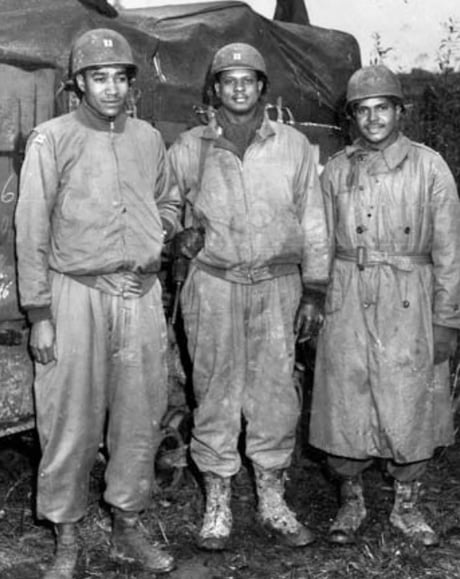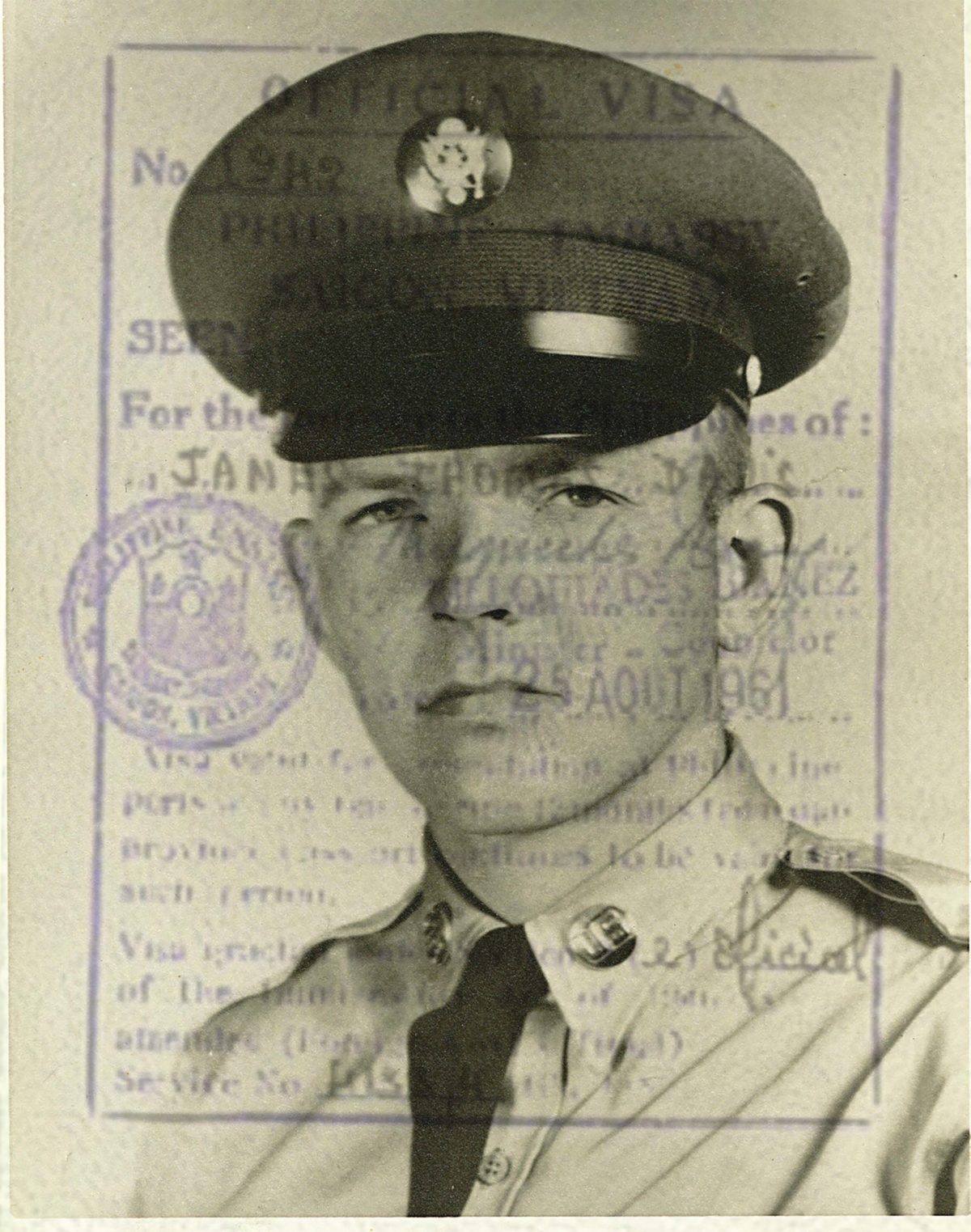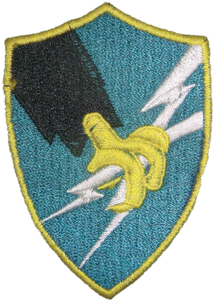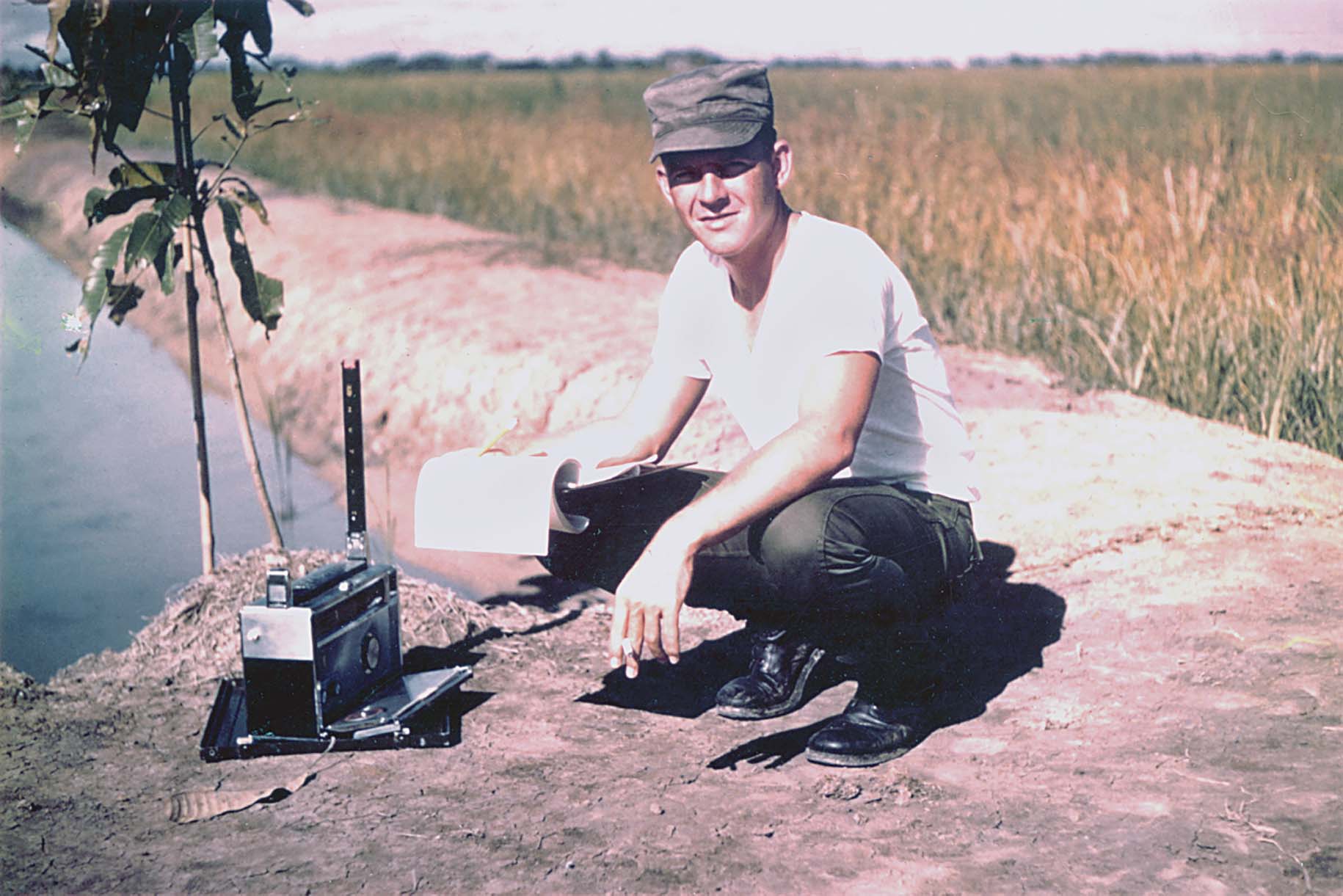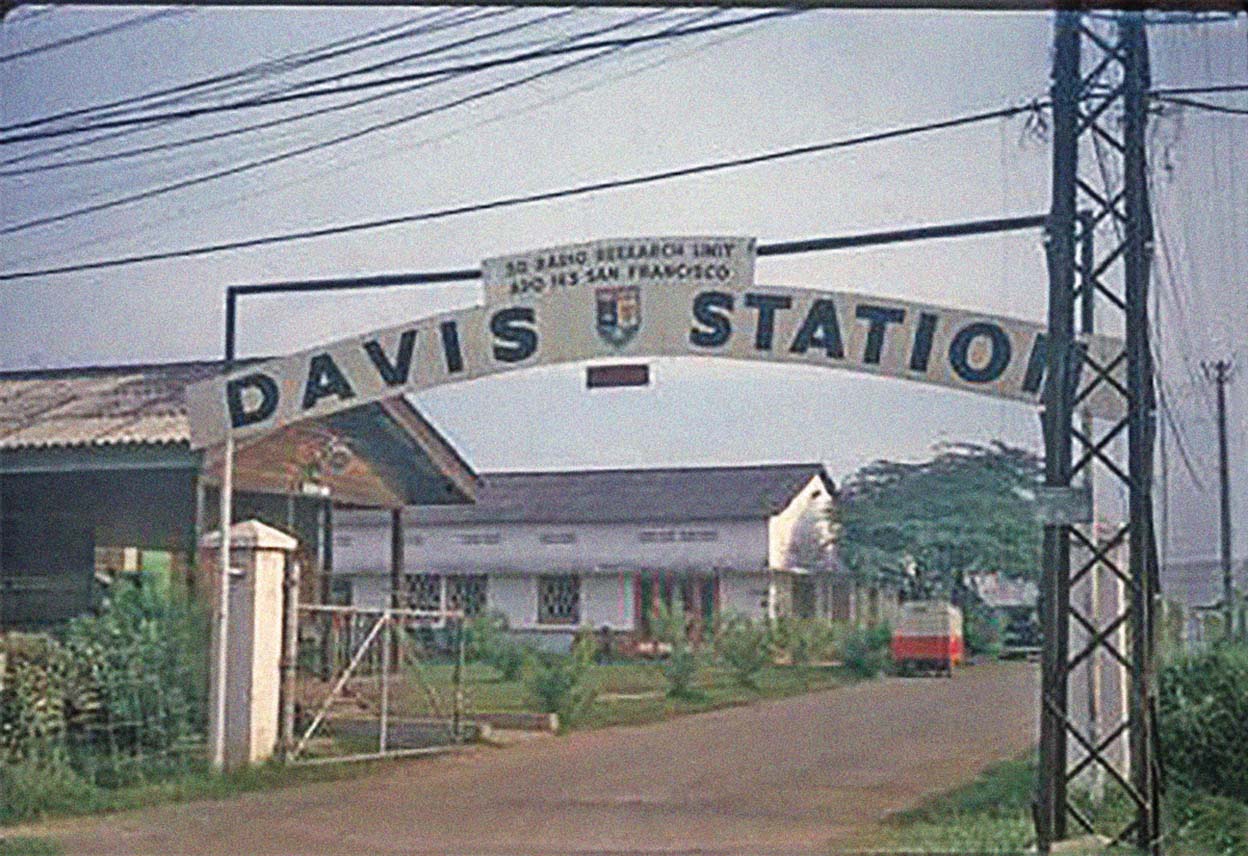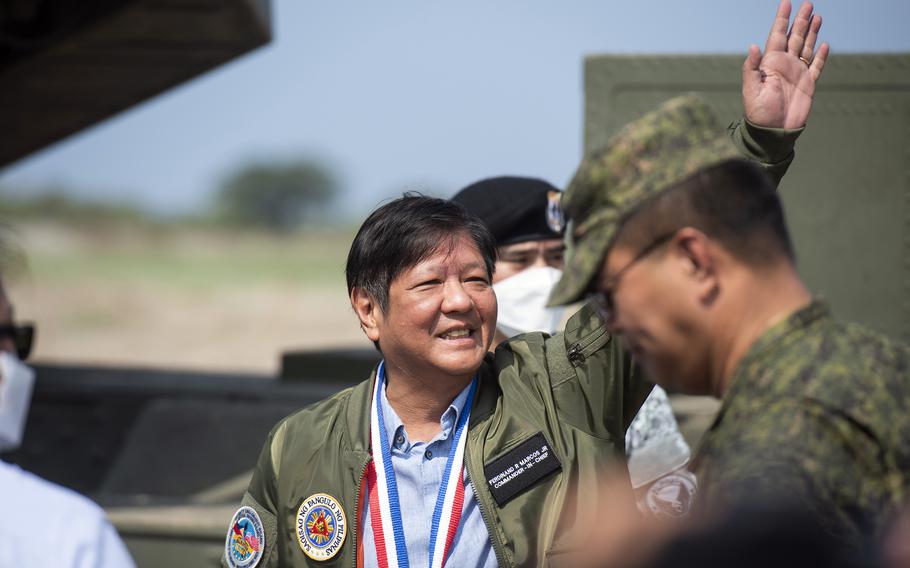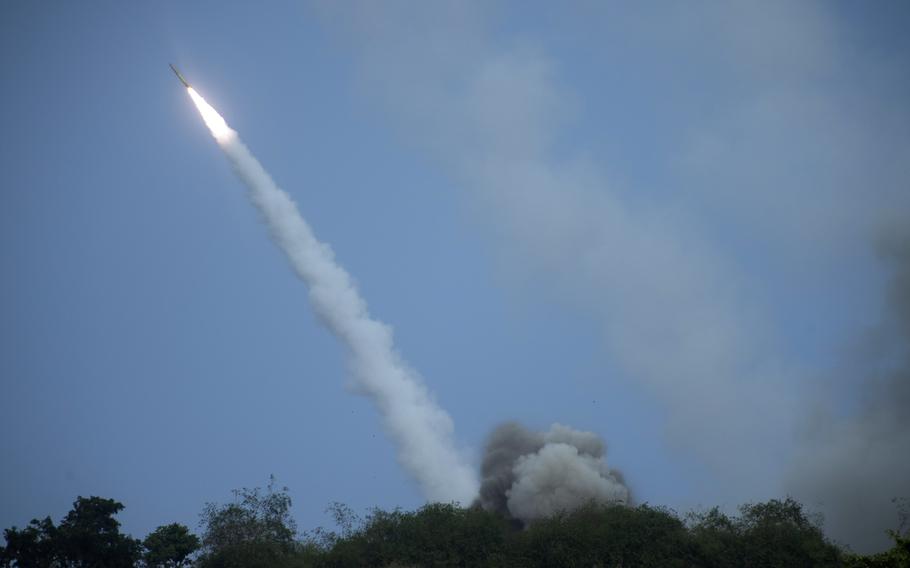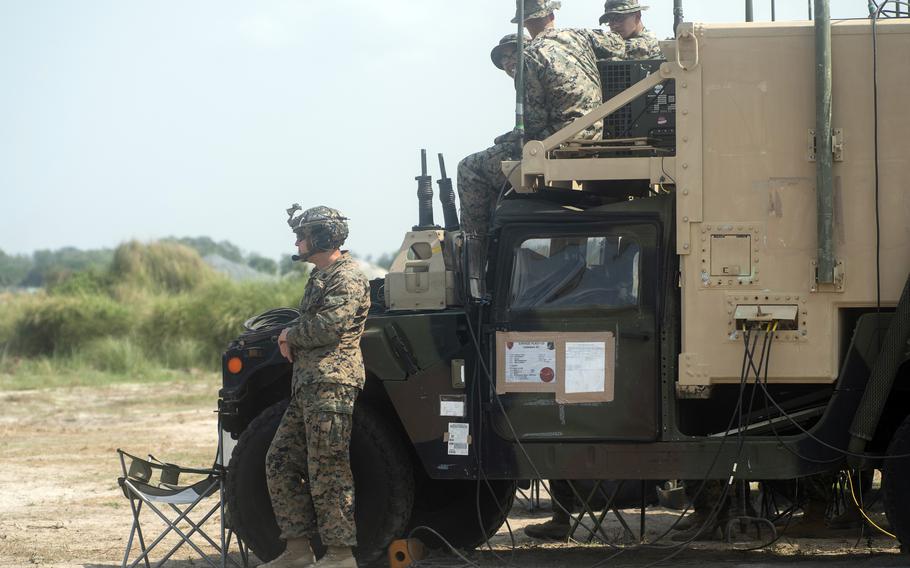For several years, I was a soldier-medic in the U.S. Army. I saw countless military and family members. Now I am a veteran looking back.
Awful Things About the Army You Might Not Know
Before I begin listing and explaining my points, I want to make it clear that this article is not meant to be disrespectful or insulting to any branch of the military. I’m not bashing the Army or America by shedding light on the unsatisfactory aspects of service. Also, I don’t want to scare anybody or discourage serving in a branch of the military because the Army isn’t scary. If you sincerely want to serve, then that’s awesome!
So what’s this article actually about? Let’s put it this way: If you want to buy a car, you can go to a dealership and stare at a car endlessly. You can walk around it as many times as you want, maybe even kick the tires. But remember, tires can be changed. You have to look under the hood. If you want to make the right decision about purchasing a car or pursuing a military career, you have to do your homework. This article will help you do that.
I’ll focus on the Army in this article because it’s the only branch of the military that I served in. I can’t speak for the other branches. To be fair, I have another article on the awesome parts of the military. Take a look at it after you read this one.
Finally, throughout this article, I’ll refer to the soldier as a “he.” I’m only doing so to keep things simple. I know there are many female service members, and I am proud to have served alongside them. Thank you for understanding.
10. Identity Theft Is a Threat to Soldiers, and It’s Just as Bad for Veterans
You might think that if you work for the Army, you’d be safe from the threat of identity theft, but let’s get honest and clear about this risk. The truth is that identity theft is rampant for service members, veterans, and their families.
If you haven’t memorized your social security number (SSN) by now, you will within the first few days of in-processing. Throughout your entire military career, it will be used so often and on so much paperwork that you will get numb to it. Why? There are so many people in the military that the quickest, easiest way to identify each individual is to do so by number. You’ll notice a lot of private sector companies do this as well.
Almost every form you fill out provides another opportunity for a criminal to get your name, SSN, and date of birth. In minutes, you can become an identity theft casualty. If you’re deployed and fighting in the latest war, you might not find out that your personal information has been stolen until months after the fact! Instead of confetti in your ticker-tape parade, you’ll have bills and more paperwork to contend with, but this time the paperwork will be for all the credit bureaus and collection agencies you’ll have to communicate with to sort out your identity theft issues. Oh, and this doesn’t end after your time serving is complete. It’s just as easy to nab a veteran’s identity as it is to steal an active soldier’s identity.
This doesn’t just happen to individual military representatives. Sometimes, large numbers of soldiers are robbed of their personal information all at once. Why would criminals go for a single target when they can take advantage of millions of hardworking, taxpaying Americans all at once? Computers are stolen from the homes and cars of government officials so often that the media thinks it’s old news. Do any of these government employees get thrown in prison? Fired? Disciplined? No. Also, the government has never been shy about hiring contractors to handle office work that contains sensitive information, so it’s not hard to doubt their devotion to protecting the information they’re privy to.
To be fair, the Department of Defense has been working hard to phase out the use of social security numbers. For example, they are no longer used on dog tags! Instead, the Pentagon issues a 10-digit randomly generated number. Go Army! Hopefully, someday, social security numbers will no longer be required for any military paperwork.
But for now, a soldier must fight on two fronts: to protect his country and his identity.
What Does the Army Do to Prevent Identity Theft?
Apart from warning service members about the risks and instructing them to be careful about their documentation, there isn’t much that can be done to protect a person’s information or identity. Prevention and swift action in the event of identity theft are typically the only ways of addressing this issue. The Military Consumer has a lot of information available to specifically help servicemen and veterans navigate identity theft issues because this kind of violation is an unfortunate possibility for people in the military.
9. The Army Is Not Adult Daycare; This Misconception Gets People Killed
One of the things I despise most is the idea that the Army serves the soldier. The Army doesn’t serve you; you serve your country by joining the Army. Fortunately, there are very few people that believe this because Basic Combat Training (BCT) does an outstanding job of smoking that idea out of recruits’ heads. But still, people who think of the Army as an adult daycare facility are out there making life for other soldiers far worse and sometimes more dangerous. Immature people who misunderstand the purpose of the Army usually want access to the Army’s benefits without understanding the sacrifices and responsibilities associated with serving.
Even though the Army does have benefits that help soldiers and families throughout their lives, these benefits are not available anywhere else, so it makes sense for civilians to join the military to get them. But those benefits are not what I’m talking about. In fact, if you serve, I highly recommend that you get involved in all the beneficiary programs you can. Doing so will enable you to be a better soldier now and a better civilian afterwards.
What I am talking about is the idea that the Army is just a job that’s impossible to get fired from or a steady source of income for anyone who can twiddle his thumbs and stay out of sight. Usually, I don’t care what people think. However, this kind of attitude usually leads to a sub-par performance.
An irresponsible soldier might get out of shape, forget minute but important parts of certain procedures, not take inspections seriously, and so on. If one soldier is lax about his responsibilities, then everyone else on the team will have a larger load to bear as a result.
My friend, the days of Beetle Bailey are over. It’s funny to see that kind of behavior in a comic strip, but to see it in real life is disgusting. If you’re the kind of guy who thinks the Army is Club Med for slackers, then the rest of this article will scare the living you-know-what out of you.
8. It Will Destroy Your Soul
David Wong published an outstanding article on Cracked.com called 9 Types of Jobs that Will Destroy Your Soul that aptly describes the roles people play in the workplace. I must warn you that the language is rough, but every word of it is true. Every soldier has experienced at least seven of these roles at some point during his military career. I will not re-write what the article says, but I will tell you that every soldier can, at any moment, become:
- The punching bag: A person who bears the brunt of complaints, but can do nothing to help.
- The walking dead: A person who will face sleep deprivation and irregular hours.
- The laughingstock: A person who does a job that everyone makes fun of.
- The cog: A person who performs endless tasks with mindless repetition.
- The rat in a cage: A manager responsible for those he has no authority over.
- The assistant cromulationist: A highly-specialized job that is impossible to explain.
- The Bob: A person who makes everyone else’s job harder.
- The girl: A.K.A. the “lone representative of your gender in the workplace” (this applies to female soldiers).
The article is hilarious. If you are a civilian, you will appreciate it, but if you are a soldier, you’ll relate to it because you will live it every day.
7. You Are on Call 24/7, Even When You’re Not
Ever wonder why service members tell time differently? For example, it’s not 11 p.m., it’s 2300 hrs. This is because war never sleeps. Those who think otherwise have another thing coming. Battle is about maneuvering units and materials at a moment’s notice to secure a tactical advantage. This can easily happen at night, and it can easily make no sense to you.
No matter what your rank or specialization, the Army can wake you up at 0200 hrs and make you guard a port-o-potty in the middle of nowhere, thousands of miles from any national security threat. The only items you might have to protect yourself will be a broom and a canteen. You’ll have no say in the matter, and nobody is required to explain anything to you.
You’re not even safe when you’re on vacation. Oh, didn’t you know that the Army considers weekends and holidays to be vacation days? That fact came as a shock to me. When you go on vacation, you are expected to fill out a lot more paperwork than you would at a typical company in the private sector. The Army wants to know every detail regarding your whereabouts when you’re on vacation—including the hotel you’ll be staying in.
Why? In case of a national emergency, the Army has to know where you are so it can summon you if they need you. Even if you are far from your base, you may be contacted to report to a closer one. This is highly unlikely, but it is a soldier’s responsibility.
6. Your First Amendment Rights Will Be Limited While You’re Serving
Most service members easily accept this. I did. Even though I knew what I believed in, I also knew it wasn’t fair to use my uniform to push my personal beliefs on anyone else. The people who love to sell their beliefs wrapped in a flag with a pretty yellow ribbon on top will be annoyed to see that their rights to free speech are tossed right out the window.
Don’t get me wrong, you can always be an armchair activist; maybe even go to a few protests or demonstrations, however, the second you identify yourself as a service member, you’ll be in deep trouble. As a military member, you’ll fight for America, but you’re not authorized to speak for it.
Still, the Army seems to favor Christianity. There’s lots of “oh, lord” this and “praise Jesus” that. This shouldn’t surprise anyone because the United States is populated by many Christians. As a Christian myself, I never did take it personally. However, many other soldiers who identify as Jewish, Muslim, atheist, etc. are forced to put their beliefs in the back seat while fighting for a constitution that guarantees religious freedom.
There is even a non-profit Military Religious Freedom Foundation that fights for the religious equality of American soldiers in the U.S. military. But don’t bring it up at any of the “prayer breakfasts” you might find yourself at. Think that was a joke? Join and see. Just don’t spill the salt.
5. When You Join the Military, Your Family Joins With You
I was born into a military family. Later, when my mother was pregnant with my brother, my father decided not to re-enlist. By then, he had saved enough to start his own business. He did so and never looked back. Decisions like this are terrifying to make. Who do you turn your back on—your family or your country? Of course, it’s not always black and white, but it does make life tough for everyone—even for the parents of soldiers.
Although military marriages are no more likely to end in divorce than civilian marriages, they are faced with unique challenges that not every couple is prepared for. For example, a military spouse is not as likely to find a career. A potential employer has to face the possibility that the employee might leave with only a few days’ notice if their spouse is suddenly stationed elsewhere. An article called “How Military Marriage Screws Up Your Career” sheds light on many of the ways that military spouses can struggle professionally.
An Army wife understands that her soldier can be deployed at any time. During this time, she holds down the fort. I hate to say this, but it’s a lot like being a single mom. It takes a very special woman to be an Army wife.
Supportive resources on military bases are there to help spouses and families, but they are usually overwhelmed by the number of people they serve. It’s becoming so much of a problem that countless non-profit organizations are popping up to fill in the gap. There is no reason you can’t have a happy marriage and a great career in the military. Just remember that when you join, so does your family.
4. You Will Be Broke
In the service, nobody gets rich. A person may join for the bonus or to pay off student loans. These are definitely great benefits. Also, the military pays for housing, food, medical fees, and so on. Furthermore, bases have gyms and recreational facilities. So what causes soldiers to end up broke?
All the aforementioned benefits are real, but the actual take-home pay is low. Take a look at the military’s take-home pay rate and look at “Enlisted Military Pay” E-1 through E-4. That’s what the youngest of our troops have to subsist on per month. Most young, single soldiers survive, but it’s our military families that are getting burned. Unfortunately, there are many reasons why a military family may live in poverty.
Oddly enough, many people actually believe that poverty in the military is a myth. As a medic, I’ve seen military family members attempt suicide because they are living with and experiencing the reality of military impoverishment. I’ve seen countless programs such as Army Emergency Relief and Adopt a U.S. Soldier try to save our soldiers’ families. I’ve seen laws such as the FY 2007 Military Authorization Act passed that, among other things, clearly make it illegal for payday lenders to prey upon our soldiers.
Poverty in the military is very real, and the possibility of being broke after enlisting is something to heavily consider. You can always join the military and try to strike it rich if you want to try to prove me wrong about this.
3. You Will See the Government Waste Money
Okay, let’s take a break. Hungry? Make yourself a snack: two eggs, any style (I like mine scrambled). Once you’ve made these eggs, throw them away, right into the garbage. Then make some more. These eggs are actually for you. Enjoy!
It was heartbreaking, right? Throwing away those perfectly fine eggs? Well, that’s what happens in the military. And I’m not talking about war profiteering, I’m talking about regular, day-in-day-out procedures. I used eggs in my example because eggs must be tossed if they’re sitting around too long after being cooked. The military throws away a lot of food every day. When it comes to feeding the troops, it’s better to throw away food rather than eat something that’s not fresh enough.
Now that I think about it, the real reason KP (kitchen patrol) is so tough is not that they’re always scrubbing pots and pans in the steaming kitchen. The real punishment is that you will end up seeing a lot of food getting thrown out, and it will be hard to witness all the wastefulness. Perfectly good food that nobody has eaten must be thrown away to prevent food poisoning. Can you throw away a whole chocolate cake that no one has touched? How about a tub of ice cream? Can you do it again and again? You will if you sign up for the military!
In fairness, there’s a lot of waste in any organization. Even the most profitable companies on earth throw things away. Sometimes it takes too much time and effort to save little things like staples, paperclips, or attack helicopters. Sometimes it takes too much time and effort to bring home thousands of perfectly functioning assault rifles. It’s just easier to order new ones from the defense contractors. This practice gives people jobs to do, so technically, everyone wins! Well, except for the taxpayers.
This was one of the toughest parts of being in the Army for me. It was hard to throw things away when, on the other side of the base, the family of a junior enlisted soldier was living in poverty and could have used what we threw out.
2. You Might Get Seriously Hurt
Casualties happen in war. War is hell. People know the risks when they join. It comes with the territory, but I’m not talking about that.
What people don’t know is that this can happen at any time and in any place, even stateside. Even if there is no ammunition or other threat around, a soldier can get seriously and permanently injured.
After years of PT (physical training), a soldier may have problems with his knees and other joints. He can easily have the same problems pro basketball players have but without the same salary. Any civilian can get injured, but it is more likely in the military because you are more active and working longer hours with more dangerous equipment.
Medics are ready, safety policies are in place, and your buddies are usually looking out for you, but sometimes this isn’t enough. As a medic, I’ve seen twenty-year-old trainees walking with canes as a result of injuries they sustained during service.
1. You Will Be Held to a Higher Standard Forever
The number one awful thing about the Army that nobody tells you is that you will forever be held to a higher standard!
Lexington and Concord, Gettysburg, Normandy, and all the soldiers who fought before you in many historic battles have paved the way. It is now your turn. If you think this is an honor, then you are right. What you might not know is that this is also a huge responsibility, and it will last until the day you die.
Your friends will expect you to be in great shape even after you are discharged. Your family will expect you to be calm and patient. Your coworkers will expect you to lead the way and handle stress easily. Everyone you know will expect you to win. Nobody will expect you to complain. If you oversleep, get drunk, become poor, gain weight, etc., then you will disappoint the civilians who look up to you.
This responsibility brings out the best in soldiers and veterans, but it lasts forever—and it will never be easy to deal with.
More Important Facts About Military Service
Here are some other important things to know about the military.
ROTC Programs
The Reserve Officers Training Corps (ROTC) are elective college and university-based training programs that prepare adults to become officers in the U.S. military. The ROTC can be used to pay for college tuition and enrolled participants are under no obligation to join the Army if they solely participate during their freshman and sophomore years of school. After graduating, participants will begin a period of obligatory military service. The United States ROTC education programs are a good option for students who want to learn more about serving in the military before they join. There are ROTC programs for every branch of the military except the coast guard.
Post-Traumatic Stress Disorder and Military Service
According to the U.S. Department of Veterans Affairs website, post-traumatic stress disorder (PTSD) is a mental disorder that can develop after a person has experienced or witnessed a traumatic event such as a violent act, warfare, or assault. Because military service may place soldiers in dangerous environments and situations, there is a risk of developing PTSD.
Before joining a branch of the military, it is a good idea to consider the dangerous aspects of service and whether or not you’re capable of facing potentially life-threatening situations. Developing PTSD, a serious injury, or dying are service-related realities of joining the military.
Should I Join the Army?
Now that you know about the unpleasant aspects of serving in the Army, it is up to you to determine whether or not these realities are enough to discourage you from serving. Some people can accept that the Army will be one of the most challenging endeavors to undertake and some people cannot.
Why Join the Army?
If you’ve done plenty of research about the Army and what service entails and you’re not dissuaded by what you have learned, then you should also consider that joining the Army will test you as a person and soldier. You will learn a lot about your country, service, the world, and yourself if you join. You will also have the opportunity to serve and sacrifice to make your nation safer or to protect the rights that Americans have.
While there are definitely unpleasant aspects of service, there are also a lot of good things about joining the Army. Understanding the potential benefits and pitfalls of joining the Army will help potential soldiers make a good decision about whether or not to enlist.
If you think you can do it, if you want the chance, or if you feel that you are ready to join the Army after reading this article, then go for it! Good luck!
This content reflects the personal opinions of the author. It is accurate and true to the best of the author’s knowledge and should not be substituted for impartial fact or advice in legal, political, or personal matters.
Questions & Answers
Question: Can I still join the Army if my English isn’t that good and I don’t speak loudly?
Answer: If you can read this sentence, you’re good to go. That said, if a civilian’s English isn’t good enough the recruiter will tell him right away. Also don’t worry if you can’t speak loudly. I promise you, the Army will fix that in three seconds. 3… 2… 1… YES, DRILL SERGEANT!
Question: What are some of the reasons that make a soldier’s job hard?
Answer: Soldiers have unique challenges that most civilians don’t. Read this article for more information. Also, America has a taste for (undeclared) war. Regardless of a civilian’s political leanings, this is a reality that the soldier and his family faces every day. They must be ready for his possible deployment. This means lots of training on top of the regular duties of the soldier’s MOS. This is the price of national security and only the finest Americans are ready to step up and pay.
Question: My wife has a lot of medical problems. Exactly how good are the Army’s medical benefits? There are procedures that she will have to have later in her life that can’t wait a year and her Medicare can’t pay for certain procedures. Recruiters will tell me anything but I just want to know the actual truth. I’m currently being processed right now through the Army but I have to wait for a waiver that’s been in Washington for 2 months now.
Answer: I’m sorry to hear about your wife’s condition. Your dilemma sounds complicated. Although it is common to be skeptical of recruiters, I think they are your best option to get the information you need.
Question: I want to join the army. I am a little skinny, but I can do heavy jobs. Could I survive the training?
Answer: If I can do it, then anyone can! If your recruiter says you’re good to go, then you’re good to go. I have written a couple of articles about how to prepare for and make it through BCT. These are good places to start: https://hubpages.com/politics/basic-training-is-ea… and https://hubpages.com/politics/how-to-get-ready-for…
Question: Why don’t you mention the educational benefits?
Answer: Agreed. The GI Bill is probably the most successful and well-known government program to date.
However, this article is not about the good news. It’s about the bad news. Also, it’s not about the things everybody knows. It’s about the things most people don’t know.
The Army is an amazing experience but it’s not Disneyland. It’s not Club Med. That’s what I was hoping to show here.
Question: Do you get paid for being in the army?
Answer: Yes! All branches of the US military pay its service members. Pay is decided by a number of factors, including time in service and rank. Special skills (such as fluency in a foreign language) as well as serving in a combat zone also increases pay. Don’t forget the various bonuses for enlistment/re-enlistment. That money adds up! Talk to your local recruiter for more information.
Question: How does the Army decide when you go out to fight?
Answer: The Army decides which soldiers to send to which conflicts. Some units will be sent more frequently than others. Sometimes a specific soldier in a unit might be called up for deployment. In the end, it all depends on the “Needs of the Army.”
Question: If I don’t have a High School Diploma, and am planning on going into the Army, does the Army have resources so I can get my High School Diploma?
Answer: I’m not sure about a high school diploma, but I think a GED is more likely. It all depends on your duty station. Tell your first-line supervisor that you want to get your GED. Also, keep your eyes open for local base programs that will help.
Question: What is the worst thing about the Army?
Answer: Ask one hundred different soldiers and you’ll get one hundred different answers. But here’s one thing they all agree on: One day, the Army ends. Then, as a veteran, you realize that the Army was actually awesome. Sure, there were plenty of tough times but they pale compared to everything else.
Question: If I join the Army, will I absolutely go to war?
Answer: Not all soldiers go to war. In the end, it’s up to the Department of Defense which units are deployed and when. Also, remember that not all soldiers who are deployed to a combat zone will actually see combat.
Question: What is the best way to get into shape before enlisting in the army?
Answer: I’ll be blunt: Focus on cardio. More importantly, DON’T OVERDO IT! Too many civilians push themselves and end up with ankle or knee injuries. Nobody wants a bad ankle a week before shipping out. Also, whatever you do, don’t forget to hydrate.
Question: Can I go to Basic Training/Boot Camp and then be done with the military (unless I’m called)?
Answer: As far as I know, there is no “be done with the military” unless the service member is formally discharged. However, the Reserve and National Guard traditionally train several weeks a year after BCT and AIT. That is a popular option for many people but these units can get called up at any time. Talk to your local recruiter for more information.
Question: Can women go into combat in the Army? If so, do they get treated differently then men do?
Answer: In the Army, women get deployed all over the world. However, I’m not a woman nor have I ever been deployed so I cannot comment from personal experience. For more information, ask your recruiter.
Question: My friend was a navy engineer. He was so excited to join. Then he couldn’t wait to get out and has clinical depression. Is this common?
Answer: First of all, if anyone you know has clinical depression, it is important that he/she gets professional help. This is for everyone, whether active duty, veteran or civilian. It is all too common to feel like the system doesn’t work then turn to “self-medication” like alcohol. This usually turns to dependency.
I’ve never been in the US Navy but as far as the Army goes, depression is possible. However, this is because if a team member or supervisor notices symptoms in someone, he/she will recommend a visit to the mental health clinic. This often leads to a diagnosis and a treatment plan. But, it could save this person’s life.
This simply doesn’t happen as often in the civilian world. A civilian can live one hundred years and suffer without a diagnosis.
Question: Do you have to learn how to swim in the army?
Answer: Swimming is not a requirement in the Army. It is not part of BCT or any AIT I know of. However, some Army units or programs may require it (Special Forces or Ranger School, for example). Contact your local Army recruiter for more information.
Question: I’m a civilian, and I’ve read negative things from most soldiers about us, how we’re not good enough compared to them and that we’re held in contempt for our lackluster performance. They mock us, calling us cowards, sissies, buttercups, and so on. It’s made me feel bad. Why are they saying such things about us? What did we do to deserve such disrespect?
Answer: I’m very sorry you feel this way. I don’t know who is saying this so I cannot comment on why they are. Personally, I don’t feel this way about civilians. I don’t feel this way about anyone. As a medic, I worked alongside civilians, military and veterans. They were all brilliant, hardworking and put the mission first. So, try to ignore those comments.
I don’t know who you are, but I think that the best thing you can do for your country is to stay out of trouble, work hard and better yourself. Do your best to be an example to those around you. This won’t always be easy, but it will always be worthwhile. Also, no drunk driving! Seriously.
Question: I feel like I wouldn’t be in good enough shape or strong enough (physically and mentally) to join but I would really like to. Do you have any tips to improve my physical and mental fortitude before joining the Army?
Answer: I believe that, if you really want it, you should talk to a recruiter. Take it from there. Then, if you qualify AND decide that the military is right for you, join and give it your very best. Count on your drill sergeants to make you a soldier. Finishing BCT and AIT is a wonderful feeling.
Question: What if I really want to join the military, but I can’t do more than one push-up?
Answer: That depends on the reason why you can’t do more than one push-up. For example, if a person is permanently disabled then he won’t be allowed to sign. He will never be a soldier. If a person is temporarily injured, he will be told to hold off until he recovers. For more information, talk to your local recruiter… OK, now what if a person REFUSES to do more than one push-up? Unfortunately, I don’t know. I have never seen or heard of anyone who really wanted to join but refused to do push-ups. If anyone reading this has any insight, please share it in the Comment section. We’d love to hear it!
Question: My brother’s friend claimed that he signed up to be part of the army; I don’t exactly know which part, but they said the position he wanted was already filled and so he’s going to the front line. Can that really happen? I thought we got to choose where we wanted to be.
Answer: First, nobody is simply tossed into battle. Once a soldier is finished with BCT and AIT, he has to be assigned to a unit. From there he has to be deployed “to the front line” if the Army needs him there.
Now, can he be bumped from the MOS he was promised in his contract? It’s very rare but it’s happened before. It’s all about the “needs of the Army.” Hmm… Is there something else going on? Did your brother’s friend fail a test? Did a background search turn up some bad news? This kind of thing is more likely.
When civilians sign up, it’s true that they can choose their first duty station. The Army does its best to make it happen but sometimes it doesn’t work out. It sucks but, again, it’s about the needs of the Army.
If your brother’s friend believes he was royally screwed, he probably won’t reenlist. In the meantime, the soldier has to put national security first. That’s the whole point of having an Army.
Question: Can I join the Army with bipolar disorder on medication. If so, what jobs are open to me?
Answer: That’s a tough one. You have to ask your recruiter. He’ll give you a straight answer.
If you don’t get the answer you want, don’t take it personally. It’s not about you, it’s about national security.
Question: I’m slightly “fluffy” in the mid-range, do I have a chance in the Army?
Answer: Great question! Believe it or not, many, many trainees are in the same boat as you. But, they do the best they can and nearly all of them make it. It isn’t always pretty but they make it. Bottom line: If your recruiter says you qualify for enlistment, then you have a great chance!
Question: Are there any websites on how to pass the AFQT if I’m not good at math?
Answer: I’m sure there are but why stop there? Check out your local library. I’m sure they have plenty of books that will help you. Also, talk to your recruiter. I’m sure he’s helped countless civilians get the scores they need to enlist.
Question: I wanted to join the Army as a medic, but I’m unsure. Are there any units for medics that you would recommend?
Answer: I didn’t decide on my unit, the Army decided for me. If your recruiter offers you the option to pick your first duty station/unit, think hard about what you want from the Army before you make your decision. Tell your recruiter why you want to join, and he might have some good bases/units in mind.
Question: Will you always get hurt while in the Army?
Answer: You will not always get hurt but everyone does get hurt. Injury is part of life, civilian or military. However, in the Army, the risk is higher than most occupations. Will the injury always be permanent? No, not always. Also remember that the US military’s healthcare system is the best in the country.
Question: I have asthma and eczema. After a tiny patch of dry skin was spotted on my elbow at MEPS, it was recommended by my recruiter that I wait a year to see if they terminate my file and go again now that the patch is gone. What do I do if MEPS still deems me unfit? What jobs are similar to this? Who will take me with no prior training? CIA, NSA and FBI all require a much higher age than I am. I’m lost if this doesn’t pan out.
Answer: As far as the military goes, each branch has its own requirements. They might not seem fair, but they are in place for a reason. Whatever happens at MEPS will be what’s best for the nation. Do your best to accept it and drive on. OK. But what about you? If you haven’t already, ask your recruiter what happens in the worst case scenario. He might have some leads. Also, what is the closest military installation? There might be civilian jobs that you qualify for.
Question: Why not mention the massive amount of allowances that easily balloon those low pay scales into far better lifestyles when writing about the Army?
Answer: Agreed!
The military pay scale can be tricky for civilians who look at it for the first time. But extra pay such as BAH (Basic Allowance for Housing) and BAS (Basic Allowance for Subsistence) make things sweeter. Any recruiter will be happy to sit down and patiently explain these benefits.
In the end, the Army is awesome but national security is not a joke. This article helps potential soldiers to look before jumping. Talk to your recruiter for more information!
Question: There is a job opportunity as a helicopter mechanic. I applied and met with a recruiter. If I pass the ASVAB and accept the position, what should I expect going into the Army?
Answer: First, you will be trained as a soldier. Next, you will be trained as a helicopter mechanic. Then, you will work on helicopters. Too easy.
But there’s more. You can expect to be part of a tradition and a part of history. Every day, you will meet the needs of the Army as it meets the needs of America. It won’t always be easy but it will always be worth it.
For more information, talk to your recruiter.
Question: I’m planning to join the Army Reserve while going to school. Will the Army get in the way of that?
Answer: The timing of your training components (BCT and AIT) can be flexible. It depends on your MOS. I’ve met plenty of trainees who were full time students. However, Army Reserve units can be called up to serve active duty at any time. For more information, contact your local recruiter.
Question: Is there respect among troops in the army? Why or why not?
Answer: Definitely! Respect is one of the Core Army Values. “Treat people as they should be treated.” It’s everywhere. Just take a look at the Comments section!
Question: I’m supposed to ship out in a month but I haven’t passed my OPAT because of the running part. What happens if you don’t pass before the ship-out date? Also, how’s the life and job of a 25B because that will be my MOS.
Answer: The OPAT (or Occupational Physical Assessment Test) was implemented only a few years ago. It is designed to make sure a recruit will be physically able to meet the demands of his future MOS. If you do not pass, your ship-out date might be delayed until you do. Or, worse, you might have to pick another MOS. Talk to your recruiter about your possible options.
I cannot comment on the life and job of the 25B (Information Technology Specialist). I was a medic. Moving forward, do your best every day. Stay out of trouble. Also, trust your buddies, your NCOs and COs. From there, no matter what happens, the Army will be awesome!
Question: Why do some civilians and soldiers say that the military doesn’t serve the country, while others say it does? Who’s right?
Answer: It’s a matter of perspective. People come from different backgrounds and see different things. So, it’s inevitable that they would have different views on everything, including the military. Also, don’t forget that the military does a lot of things. Some of them are more glamorous than others.
Question: Can I join the Army without going to war and shooting people, I want to be a mechanic on airplanes?
Answer: Every soldier has to put national security first. That’s the reason we have an Army.
If you sign as an airplane mechanic, you’ll be trained as a soldier in Basic Training (BCT) then as an airplane mechanic in Advanced Individual Training (AIT). Next, you’ll be assigned to a unit that needs an airplane mechanic.
From there, where you go and what you do will depend on the needs of the Army. You will most likely be an airplane mechanic but you cannot rule out the possibility of combat. There’s always a chance of it no matter what your MOS.
Question: What does an army recruit get paid a year?
Answer: There is no magic number because there are many variables. For example, even though two trainees started on the same day, their pay will be different if one of them has a family. Also, the government updates the pay every year to keep up with inflation. For more information, contact your local recruiter.
Bottom line: Military service is an amazing experience. It is meaningful work. Military benefits are unmatched and veterans benefits are almost as sweet. BUT, don’t join only for the money.
Question: If my ASVAB score is very low, will I get Infantry or is it possible to get something else?
Answer: First of all, there is nothing wrong with Infantry. Infantry is awesome. When people think “Army” they think “Infantry.”
Now, to answer your question, it is possible to get something else. Anything is possible. But what else would you qualify for? That’s something to ask your recruiter.
Listen to him. He’ll lay it out for you. Take a serious look at all the options available. Don’t toss any MOS because everybody sweats and everything is vital for national security. That’s what the military is about: national security.
Still don’t like your options? If you think you can do better, maybe you can. Study your *ss off! I’ve met people who studied for almost a year to get the score they needed and got the job they wanted.
In the end, military or civilian, life is what you make of it.
Question: Can a 16 year old kid join the Army?
Answer: I’ve never seen or heard of someone that young in the US military. Ask your local recruiter for more information. In the meantime, stay healthy, stay motivated, stay in school and–most important–stay out of trouble!
Question: Why don’t you be truthful about the character of the people going in? I was glad to serve but the Army needs to recruit better people.
Answer: Simply put: I try my best not to judge people–especially people I have never met.
However, I will say that I was (and still am) very proud of everyone I served with. People from all over the country, in every branch and every status (active duty, veteran and civilian).
You will probably give me a thousand stories of service members who do something wrong or just stupid. Fine. I will give you ten thousand right back of them saving our country from all enemies foreign and domestic.
We all take our oath and step up. We are inspired to do our best from our NCOs and COs. It’s not always pretty but it’s always worth it.
If you can read this, thank a teacher. If you can read this in English, thank the military!
Question: Well, you have skillfully showed the bad however, there are also good outcomes and benefits from serving. How about you talk about the good things as well? Just saying…
Answer: Agreed! There are many great things! I DID write about them… in another article. Take a look! Your insight and optimism would greatly be appreciated there.
Question: How do you make it in Bootcamp, any tips?
Answer: Great question!
BCT (Basic Combat Training) is difficult but it isn’t impossible. Countless trainees finish it every year. I have written several articles about it. Take a look below!
https://discover.hubpages.com/politics/how-to-get-…
https://discover.hubpages.com/politics/basic-train…
https://discover.hubpages.com/politics/should-i-jo…
Question: Why do you always refer to soldiers as male (except when they are called “that girl”) and their spouses are always wives? As a female Army veteran of 16 years, I find that very disappointing and sexist. I’m not saying you are but that’s the way it came across.
Answer: Agreed! Women have served in all branches of the US military for decades. I have served proudly along side many of them.
I didn’t mean to offend anyone. I did this only to simplify my article. “He/she” or “She/he” didn’t work with the folksy and casual tone I was hoping for in this article. Thanks for understanding.
Question: My boyfriend wants to join the Army next year and I’m so afraid. I don’t want him to. I’m so scared that he’ll get hurt, die or he’ll come home broken. Am I wrong to feel this way?
Answer: That’s a tough one. If it helps any, you are not alone. Many, many loved ones and family members experience this because many, many civilians join the military every day. Why not? After all, the military is a big transition from civilian life. Also, unfortunately, civilians don’t think of the good, just the bad and the ugly.
So, are you “wrong to feel this way?” I cannot answer that. I cannot tell you how to feel. However, I ask that you trust your boyfriend and his decision. My guess is that his decision wasn’t on a whim. He thought long and hard on it. So why not trust him? While you’re at it, trust his future team and supervisors. They’ll look out for him and he’ll look out for them.
A lot of folks seem to be taking this article the wrong way. In other words, I didn’t write it to discourage or scare anyone. I didn’t write it to bash the military. I meant to celebrate it. It’s an amazing experience as long as you do your best and put your country first. Trust your boyfriend to do that.
Question: Why is being held to a higher standard a bad thing?
Answer: Agreed!
This “awful thing” was supposed to be my transition. I was hoping that it would explain that the Army has its ups and downs but the ups will shine in us forever.
Talk to your recruiter for more information!
